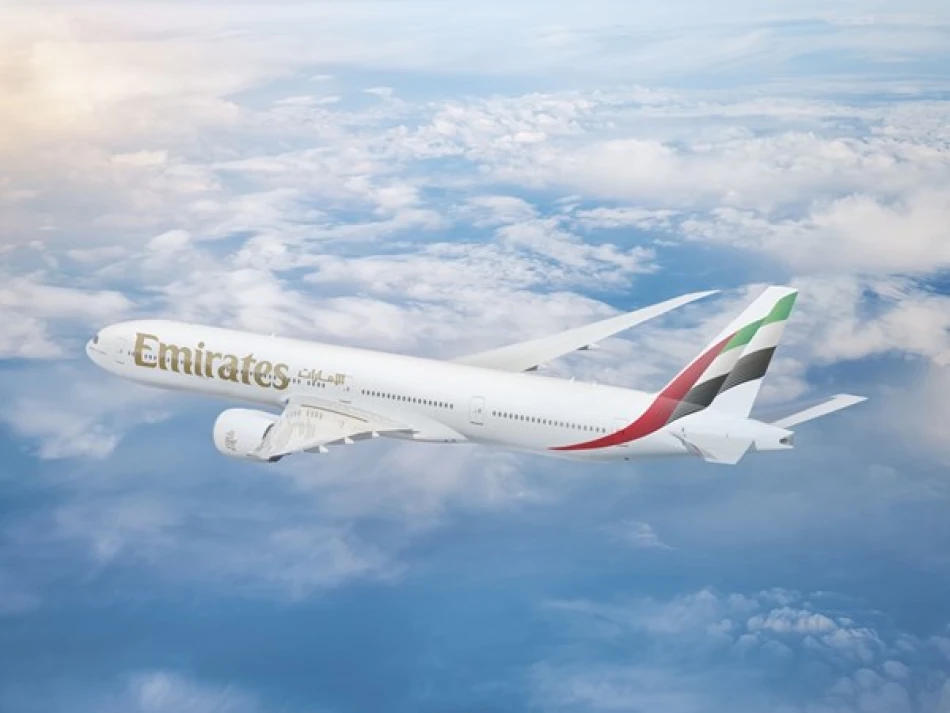
Emirates Expands Mauritius Service with Third Daily Flight
Emirates Bets Big on Mauritius with Third Daily Flight as Indian Ocean Tourism Rebounds
Emirates Airlines is tripling down on Mauritius, launching a third daily service to the Indian Ocean island nation starting December 1st—a strategic move that signals both the carrier's confidence in post-pandemic travel recovery and Mauritius' growing appeal as a premium destination for Middle Eastern, European, and American travelers seeking tropical escapes.
Capacity Surge Reflects Tourism Momentum
The new Boeing 777 service (flight EK 709/710) will complement Emirates' existing twin Airbus A380 operations, boosting seat capacity on the Dubai-Mauritius route by over 30%. This expansion comes through a codeshare partnership with Air Mauritius, offering travelers more flexible scheduling options—a critical factor in today's travel landscape where flexibility often trumps price.
Adnan Kazim, Emirates' Deputy President and Chief Commercial Officer, emphasized that the airline's daily services have been instrumental in driving tourism growth to the country, with the additional flight designed to serve both leisure and business travelers while maintaining seamless connections to other destinations in Emirates' network.
The Numbers Behind the Strategy
Emirates' commitment to Mauritius runs deep. Since launching services in 2002, the carrier has transported over 8.8 million passengers and 126,000 tons of cargo to and from the island. The economic impact has been substantial: $119 million in direct flight revenues, $264 million in tourism receipts, and $530 million in tourist spending flowing into Mauritius' economy, while creating approximately 3,600 jobs.
Why Mauritius Matters Now
This capacity increase reflects broader trends in post-pandemic travel patterns. Mauritius has emerged as a standout destination for several reasons: its successful COVID-19 management, visa-free access for many nationalities, and positioning as a luxury alternative to more crowded tropical destinations. The island's appeal extends beyond beaches—it serves as a financial hub for Africa and offers attractive residency programs for wealthy investors.
Market Implications and Competitive Dynamics
Emirates' expansion mirrors similar strategies by Gulf carriers who are aggressively rebuilding and expanding their networks. The move puts pressure on competitors like Qatar Airways and Turkish Airlines, who also serve the Indian Ocean region. For Mauritius, increased Emirates capacity could help diversify its tourism base beyond traditional European markets, particularly as the airline's extensive network facilitates connections from North America and Asia.
The timing is strategic: Mauritius is entering its peak tourist season (November to April), and the additional capacity should capture pent-up demand from travelers who postponed trips during the pandemic. The codeshare arrangement with Air Mauritius also provides the local carrier with enhanced global connectivity at a time when many smaller airlines are struggling with post-pandemic recovery.
Broader Aviation Recovery Signal
This expansion represents more than just route development—it's a confidence vote in premium leisure travel recovery. Emirates' decision to deploy both A380s and Boeing 777s on the same route suggests strong forward bookings and pricing power, indicating that affluent travelers are returning to long-haul leisure destinations with renewed enthusiasm.
Most Viewed News

 Layla Al Mansoori
Layla Al Mansoori






